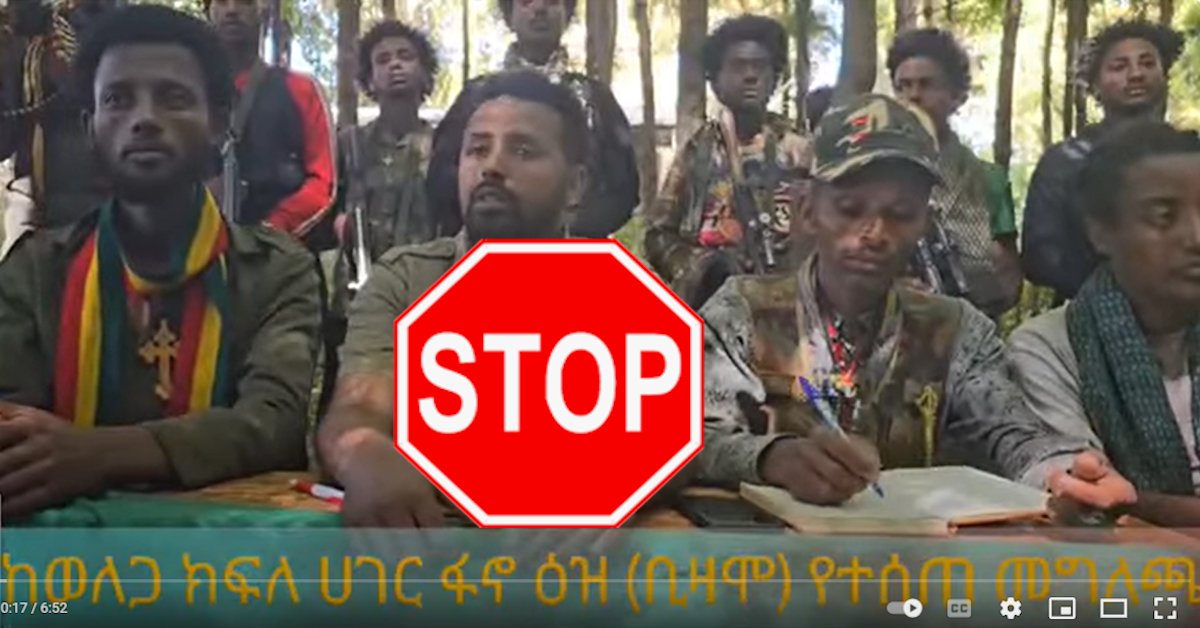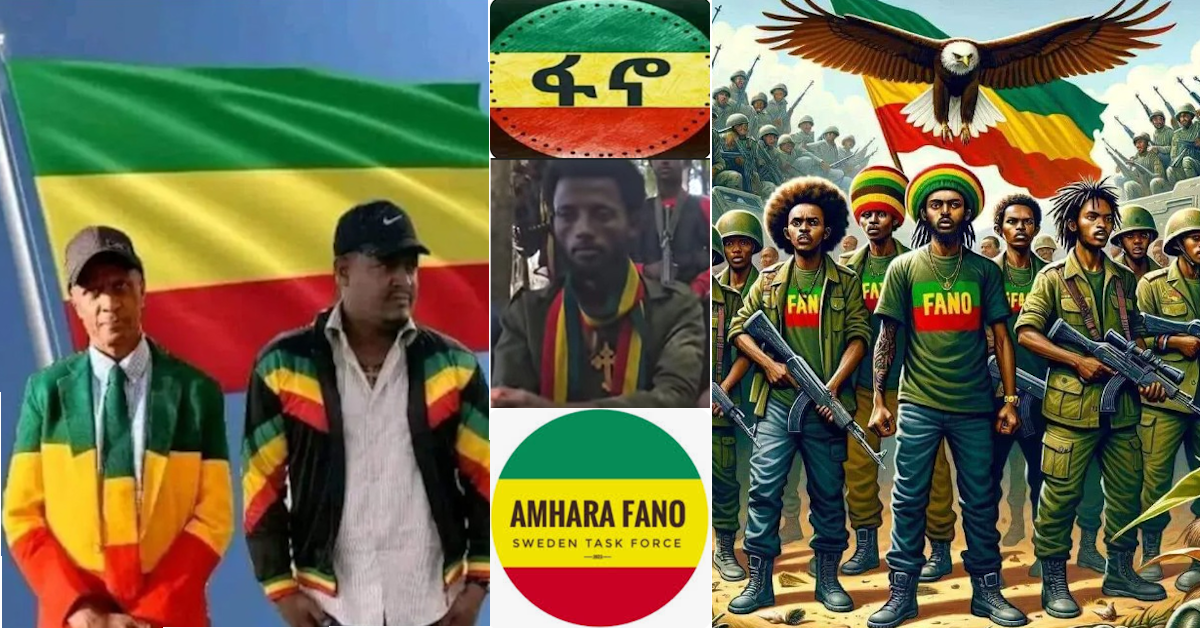by Elemoo Qilxuu
“Look at the OLF—fifty years. In those fifty years of OLF struggle, what have the Oromo people benefited? It’s time to sit down and review. Exhaustion!, exhaustion.”
“ተመልከቱ ኦነግን ሀምሳ አመት፤ ሀምሳ አመት በኦነግ ትግል የኦሮሞ ህዝብ ምን ጥቅም አገኘ? ቁጭ ብሎ መገምገም ያስፈልጋል። ድካም! ድካም።”
— PM Abiy Ahmed, October 31, 2024.
Source: YouTube video from timeline 00:11:59, Oct 31, 2024
To PM Abiy Ahmed,
Here is an extended response to your question, though it may be rhetorical. First, allow me to provide some background.
In a land of vibrant cultures and boundless natural wealth, a movement breathes with the heartbeats of millions—a quiet force that ripples through generations, tethered not to flashy power plays but to an unshakeable belief in dignity, justice, and self-determination.
This is OLF, an organization bearing a name that has become, over time, a revered echo—a name that uplifts the hopes of its people and instills fear in those who thrive on their subjugation.
For fifty plus years, OLF has endured, a figure not as much on a battlefield but a symbol woven into the fabric of the nation’s spirit. Born from the simple yet profound vision of a people governed by themselves and free to cultivate their land, language, and culture, OLF became both an emblem of aspiration and a silent lever of change.
Ironically, its achievements were not proclaimed from a podium but have seeped into reality through the sheer reverence it commands. The organization exists not merely in offices or physical strongholds but in the hearts of its people, an incorruptible testament to an ideal that transcends tangible measures of progress.
The leaders, some who found themselves at the helm by accident, of course, are threatened by this kind of intangible power. In their eyes, OLF is both an ever-present reminder of resistance and a direct challenge to their unchecked authority. They label it a ‘boogeyman,’ a ‘disruptor,’ and even cast its armed wing into the public eye as a ‘terrorist threat,’ dismissing the group’s legacy with cold words: “Fifty years under OLF —what have the people benefited? Exhaustion!” Yet the truth resonates, louder than any such mockery.
In reality, it is precisely the OLF’s existence—its enduring presence as an embodiment of justice—that has compelled even the most resistant hands to implement transformative changes within the empire’s landscape:
- Biyya Oromo was reborn as Oromia, be that trimmed and fragmented at the edges by the cunning maneuvers of the EPRDF regime.
- The Oromo alphabet, Qubee, has catalyzed rapid advancements in Oromia’s education, literature, and culture, harmonizing with modern technology.
- While we make no exclusive claim, the Oromo movement was pivotal in the 1975 Land Reform Proclamation, which swiftly ended the feudal system.
- The Intellectual Capital the OLF movement has fostered worldwide is vast and incalculable. This might sound abstract, but we’ll revisit this concept for in-depth analysis. For now, it’s enough to observe that the Oromo people are increasingly recognized on the world stage—for their indigenous democratic traditions, culturally significant celebrations, distinguished intellectuals, numerous cultural attractions, and, not forgetting record-breaking music videos that spark envy among their opponents.
But these are only glimpses of progress; many challenges, naturally, still remain.
But these concessions are shadowed by irony; the powers-that-be make just enough changes to soothe unrest, yet always fall short of granting true control over resources and futures to those whose voices should rightfully command them.
PM Abiy Ahmed: The great irony is that you are where you are now because of the OLF.
In a peculiar, almost surreal spectacle, the political elite plays at being saviors while keeping the OLF sidelined and marginalized. Their intent is painfully transparent: to sever the OLF from the hearts of its people, sow disunity, and position themselves as the true stewards of progress. They court the populace with hollow promises—thinly veiled gestures to placate, all while tightening their grip on resources—resources they desire but begrudge to those who rightfully own them.
When these tactics failed, their desperation erupted in brutal forms: mass incarcerations, killer squads, arson to burn down dwellings often with occupants, unaccountable random summary executions, and indiscriminate drone bombings. Yet each act of violence only fortified the resolve of the Oromo people. “If they claim to care for us,” people began to ask, “why do they kill us?” The answer became glaringly clear: they want our resources, our land—not us.
And yet, the efforts of the brutal regime only underscore the truth: OLF is a power so deeply ingrained in the collective consciousness that even opponents must operate within the framework OLF has defined. For without OLF, without this ‘silent force’ holding them accountable from afar, so to speak, none of these concessions would even be conceived.
Thus, OLF remains, a paradox of power: it holds no official seat, yet dictates the political climate through its mere existence; it fires not as many bullets, yet every move its adversaries make is, ultimately, a counter to the ideals it upholds. The movement does not seek to disrupt others but simply to reclaim what is theirs, and in this resolve lies an unstoppable energy. It is a rare phenomenon—a movement so compelling, so undeniable, that it achieves by proxy (OPDO, ODP, PP), illuminating the hypocrisy of those who both deride it and mimic it. OLF does not only stand for its people but also speaks to a larger human struggle, echoing the unyielding call for self-determination, for equity, for justice.
So, as the leader taunts and belittles, OLF’s essence only solidifies. For those who understand the heartbeat of this land, it is not merely a political organization but a promise that dignity will one day be fully restored. With a quiet tenacity and an unbroken will, OLF carries forth, achieving not only for its people but standing as a testament to the power of an idea—a promise embedded in the soul of a nation, unbreakable and ever present.
The OLF is not merely the political party that your administration keeps at arm’s length. It is the very ideal of the Oromo people, planted over 50 years ago and growing stronger with each passing day. It doesn’t reside in any official headquarters; it lives in the hearts and minds of the Oromo people.
Dear PM Abiy Ahmed:
The great irony is that you are where you are now because of the OLF. Do you remember the Qarree and Qeerroo, the youth activists and freedom advocates who propelled you to power, emerging from the shadows with a force you could not ignore? Yes, those brave individuals whom you drove to take up arms, to retreat to the valleys, hills, and mountains of Oromia in defense of their ideals. Yes, those who now carry on under the banner of OLF-OLA.
Consider this a new chapter in the struggle, Phase II, if you will. Believe it or not, the mere existence of the OLF-OLA also continues to bring immeasurable gains for the Oromo people. Imagine what would happen if the OLF-OLA ceased to exist—what would be done, and what would remain neglected in their absence? I can think of countless things.
As a wise veteran of Oromo politics recently said in an interview, Waboon salphina nu olchee! In their absence, it’s nearly impossible to fathom where we would stand on the political landscape. The answer is therefore not ድካም!—it is far more nuanced and respectful than those harsh words, as I have tried to illuminate above.
Truth, along with the relentless pursuit of freedom and justice, shall inevitably prevail. Victory to OLF-OLA and the Oromo people! Thank you.


